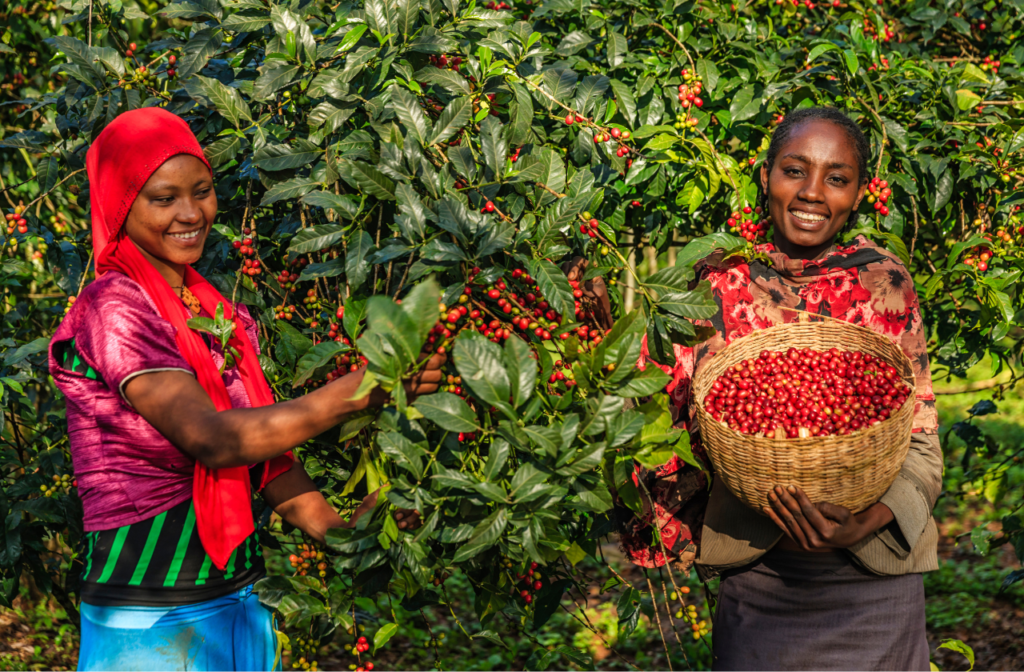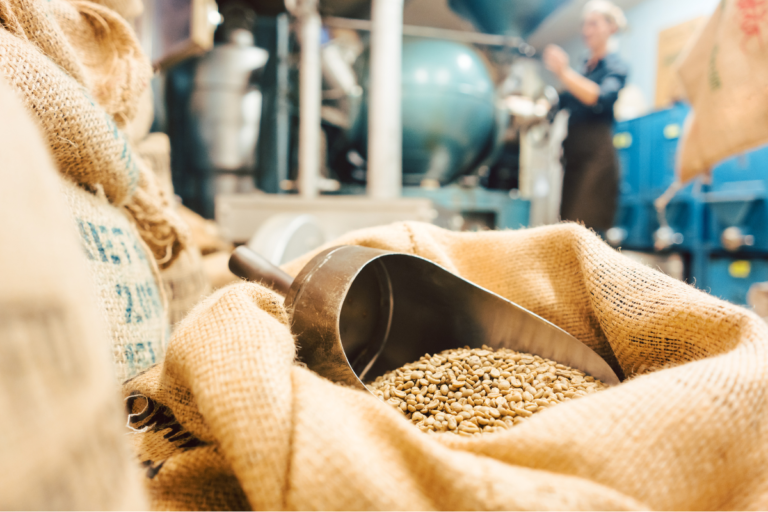Coffee Brings People Together And Strengthens Communities
In an increasingly disconnected world, coffee has emerged as a powerful force that brings people together, fostering a sense of belonging and strengthening communities. Beyond its rich flavor and energizing properties, coffee has woven itself into the very fabric of human socialization, acting as a communal thread that binds individuals together.
Coffee is not just a beverage but a social glue that brings people together with its remarkable ability to transcend cultural boundaries and unite people from diverse backgrounds. Coffee shops have become modern-day meeting places where friendships are forged, ideas are exchanged, and communities find common ground.
This article explores the historical roots of coffee culture and the pivotal role of coffeehouses as social hubs. It delves into the shared experiences and rituals surrounding coffee consumption, highlighting how they create opportunities for meaningful connections. Discover how coffee plays a vital role in community engagement, building networks, and creating support systems that empower individuals and foster a sense of collective belonging.
Historical Roots of How Coffee Brings People Together
Coffee culture has its historical roots dating back to the 15th century when coffee was first discovered and cultivated in the highlands of Ethiopia. This discovery marked the beginning of a beverage that would eventually become deeply embedded in cultures around the world.
The cultural significance of coffee cannot be overstated. From its humble origins in Ethiopia, coffee quickly spread to the Arabian Peninsula, where it gained popularity for its stimulating effects. Coffee houses became gathering places for intellectual and cultural exchange, fostering a sense of community and belonging. This sense of togetherness extended beyond the Middle East, as coffee houses began to spring up in Europe and eventually across the globe.
The economic impact of coffee cannot be ignored either. The cultivation, processing, and trading of coffee beans have become major industries, providing livelihoods for millions of individuals worldwide. Coffee production has become a source of income and economic development for many countries, particularly in Latin America, Africa, and Asia. The coffee industry has created numerous job opportunities along the entire supply chain, from farmers and pickers to roasters and baristas.
Coffeehouses as Social Hubs
As social hubs, coffeehouses serve as gathering places that foster community and facilitate meaningful connections among individuals. These establishments have a long-standing cultural significance and play a pivotal role in shaping the social fabric of and strengthening our communities.
Coffeehouses have been a place of intellectual exchange and artistic expression throughout history. Think back to the 17th and 18th centuries, when coffeehouses in Europe were frequented by philosophers, writers, and artists who engaged in lively discussions and debates. Today, coffeehouses continue to be spaces where people come together to share ideas, engage in meaningful conversations, and build relationships.
Not only do coffeehouses bring people together, but they also have a significant economic impact. According to a study conducted by the National Coffee Association, the retail coffee industry contributes billions of dollars to the global economy each year. Coffeehouses create jobs, support local suppliers, and contribute to the overall growth of the communities they serve.
To illustrate the cultural significance and economic impact of coffeehouses, let’s take a look at the following table:
| Cultural Significance | Economic Impact |
|---|---|
| Intellectual exchange | Job creation |
| Artistic expression | Local suppliers |
| Community building | Economic growth |
Coffeehouses are more than just places to grab a cup of coffee. They are social hubs that bring people together, foster community, and contribute to the well-being of our society. Whether you’re a regular or a first-time visitor, stepping into a coffeehouse provides a sense of belonging, connection, and the opportunity to be part of something greater.
Coffee Rituals and Shared Experiences

The practice of partaking in coffee rituals and the shared experiences they create contribute to the sense of community and connection among individuals. Coffee rituals hold cultural significance and are often deeply rooted in tradition. These ritualistic practices provide a sense of belonging and help to foster a shared identity within a community.
In many cultures around the world, coffee rituals are seen as a way to bring people together and strengthen social bonds. Whether it’s the Japanese tea ceremony, the Ethiopian coffee ceremony, or the Italian espresso culture, these rituals create a sense of unity and shared experience. They provide a space for individuals to come together, engage in meaningful conversations, and create lasting memories.
Coffee rituals also offer an opportunity for individuals to slow down and appreciate the present moment. The act of brewing and enjoying a cup of coffee can be a meditative experience, allowing individuals to relax, reflect, and connect with themselves and others.
These rituals often involve the passing down of traditions and knowledge from one generation to another. The sharing of recipes, brewing techniques, and stories creates a sense of continuity and heritage within a community.
Weird Coffee Tip: Coffee can be brewed to different strengths and flavors according to the type. Find out which coffee bean reigns supreme in this article:
The Ultimate Showdown: Arabica Vs Robusta – Which Coffee Bean Reigns Supreme?
Coffee’s Role in Community Engagement
Through its economic impact and the nurturing of coffee shop culture, coffee plays a pivotal role in community engagement and is enhanced through the shared experience of coffee rituals and the connections they foster. Coffee plays a vital role in bringing people together and strengthening communities, creating spaces where individuals can gather, connect, and engage with one another to create thriving communities where everyone feels valued and included.
Here are two ways in which coffee’s role in community engagement has a profound emotional impact:
- Creating Economic Opportunities: Coffee shops not only provide a gathering place for community members, but they also contribute to the local economy. By supporting local coffee shops, community members help generate employment opportunities, stimulate business growth, and foster a sense of pride in their neighborhood.
- Fostering Coffee Shop Culture: Coffee shops often become the heart and soul of a community, serving as a meeting place for friends, neighbors, and colleagues. These spaces encourage interaction, collaboration, and the sharing of ideas. Whether it’s discussing local issues, planning community events, or simply enjoying a cup of coffee together, coffee shops cultivate a sense of belonging and camaraderie.
Building Networks and Support Systems Over Coffee
Building upon the previous subtopic’s exploration of coffee’s role in community engagement, the cultivation of networks and support systems is another significant aspect of how coffee brings people together and strengthens communities.
Coffee shops have long served as gathering places where individuals can come together, connect, and collaborate on various projects. These collaborative projects not only foster a sense of belonging and unity but also contribute to the growth and development of the community.
Through coffee, people have the opportunity to meet and form connections with others who share similar interests and aspirations. These connections often lead to the creation of support systems, where mutual assistance becomes a cornerstone of community development. In these spaces, individuals can find the support they need to pursue their dreams and overcome obstacles. Whether it is through sharing resources, providing advice, or simply lending a listening ear, the coffee community offers a platform for people to come together and support one another.
Coffee shops often serve as venues for workshops, seminars, and events that aim to educate and empower individuals in the community. These initiatives allow people to acquire new skills, exchange knowledge, and build networks that can lead to further opportunities and collaborations. By fostering an environment of inclusivity and collaboration, coffee plays a vital role in building networks and support systems that strengthen communities and promote collective growth.
Frequently Asked Questions
How Did Coffee Become the Most Popular Beverage in the World?
The evolution of coffee as the most popular beverage in the world can be attributed to its cultural influence. Through its rich history and widespread adoption, coffee has gained a global appeal, bringing people together and fostering a sense of community.
What Are Some Famous Coffeehouses Throughout History?
Throughout history, coffeehouses have played a significant role as gathering places for communities. These famous establishments, known for their cultural significance and coffee rituals, have fostered a sense of belonging and camaraderie among people.
Are There Any Specific Rituals or Traditions Associated With Coffee Consumption in Different Cultures?
Cultural coffee traditions play a significant role in fostering social bonding and creating a sense of belonging. These rituals and practices associated with coffee consumption bring people together, reinforcing the importance of community and shared experiences.
How Does Coffee Contribute to Community Engagement and Social Change?
Coffee contributes to community engagement and social change by providing a common gathering place for people to connect and exchange ideas. Through community events and coffee shop gatherings, individuals can build relationships, foster collaboration, and work towards positive transformations in their communities.
How Has Coffee Helped in Building Strong Support Systems for Communities in Need?
Coffee has played a significant role in building strong support systems for communities in need. It has fostered collaboration and empowered individuals to come together, creating a sense of belonging and community empowerment.
Conclusion
Coffee has a rich historical background and plays a significant role in bringing people together and strengthening communities. Through coffeehouses as social hubs and shared rituals, coffee fosters a sense of connection and enables individuals to engage with their communities. By building networks and support systems, coffee contributes to the empowerment and collaboration of individuals, leading to a more inclusive and cohesive society.
-
Espresso Express eBook
R180,00 -
From Bean To Brew eBook
R450,00 -
Great Coffee, Made Simple
R0,00














